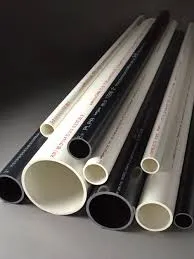Nov . 05, 2024 16:16 Back to list
hdpe pipe for sewer line service
HDPE Pipe for Sewer Line Service An Overview
High-Density Polyethylene (HDPE) pipes have gained significant traction in the construction and utility sectors, particularly when it comes to sewer line services. This material's unique characteristics and advantages make it a preferred choice for both municipal and industrial applications.
Advantages of HDPE Pipes
One of the most remarkable benefits of HDPE pipes is their robustness. Unlike traditional materials such as PVC or concrete, HDPE is resistant to corrosion, which is crucial for sewer applications prone to chemical exposure. This resistance extends the lifespan of the pipes, often exceeding 50 years, thereby reducing the need for frequent replacements and maintenance.
Another notable feature of HDPE pipes is their flexibility. The inherent elasticity of the material allows for easier installation in various soil conditions, making it an ideal option for areas with challenging terrains. This flexibility also enables the pipes to withstand ground movements without cracking or breaking.
HDPE pipes boast excellent hydraulic properties, with smooth inner walls that minimize frictional losses. This feature not only ensures that wastewater flows efficiently through the sewer system but also reduces the energy required for pumping, resulting in cost savings for municipalities and utility companies.
Environmentally Friendly Choice
hdpe pipe for sewer line service

As the world increasingly prioritizes sustainability, HDPE pipes stand out as an environmentally friendly choice. The material is recyclable, and the production process generates fewer greenhouse gases compared to traditional materials. Additionally, the longevity and durability of HDPE reduce the frequency of pipe replacements, minimizing the environmental impact associated with manufacturing and disposal.
Installation Benefits
Installation of HDPE pipes is generally more straightforward compared to other materials. They can be fused together using heat, which creates a monolithic and seamless connection. This approach not only enhances the strength of the joints but also minimizes the potential for leaks, which is a critical concern in sewer line applications. Furthermore, the lightweight nature of HDPE reduces transportation costs and labor during installation, as fewer heavy lifting equipment or extensive manpower is needed.
Applications in Sewer Systems
HDPE pipes are versatile and can be used in various sewer applications, including gravity sewer lines, pressure sewer systems, and force mains. Their adaptability makes them suitable for both new construction and rehabilitation projects, such as relining old clay or concrete pipes in urban settings.
Conclusion
In conclusion, HDPE pipes provide an excellent solution for sewer line service due to their remarkable durability, flexibility, and hydraulic efficiency. As municipalities and industries continue to seek improved infrastructure solutions, HDPE stands out as a product that aligns with both operational effectiveness and environmental sustainability. With the ongoing advances in pipe technologies and installation methodologies, the role of HDPE in modern sewer systems is set to expand, ensuring efficient and reliable wastewater management for generations to come.
-
High-Quality PVC Borehole Pipes Durable & Versatile Pipe Solutions
NewsJul.08,2025
-
High-Quality PVC Perforated Pipes for Efficient Drainage Leading Manufacturers & Factories
NewsJul.08,2025
-
High-Quality PVC Borehole Pipes Durable Pipe Solutions by Leading Manufacturer
NewsJul.08,2025
-
High-Quality PVC Borehole Pipes Reliable PVC Pipe Manufacturer Solutions
NewsJul.07,2025
-
High-Quality UPVC Drain Pipes Durable HDPE & Drain Pipe Solutions
NewsJul.07,2025
-
High-Quality Conduit Pipes & HDPE Conduit Fittings Manufacturer Reliable Factory Supply
NewsJul.06,2025

